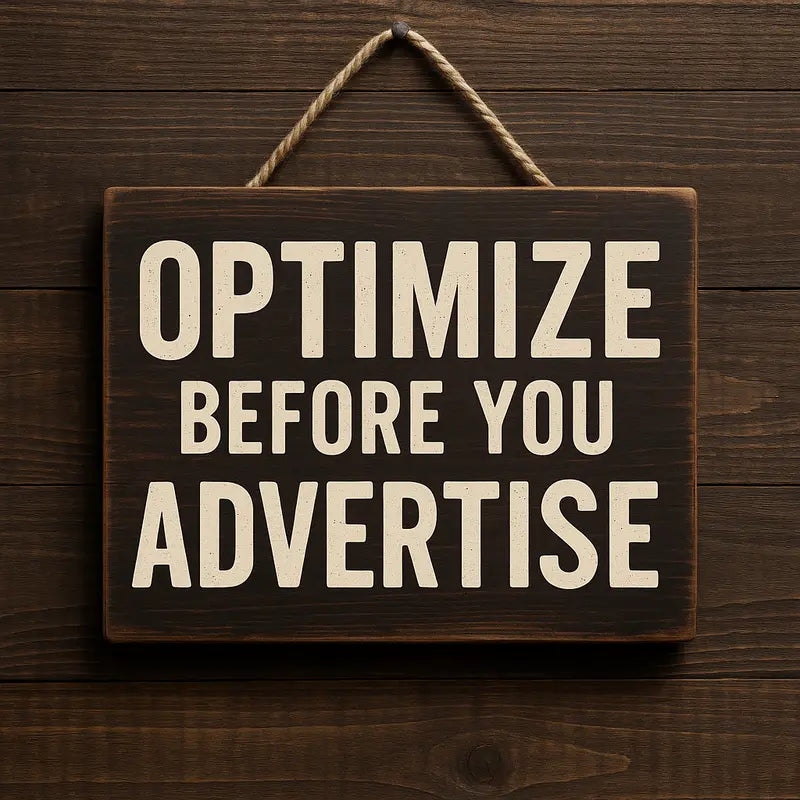#4 Why Most Shopify Stores Fail After Launch —

And How to Keep Yours Growing
Launching a Shopify store is exciting. You customize your theme, upload your products, write killer product descriptions (hopefully SEO-rich), and hit publish. For a moment, you feel like you're on top of the world. You’ve built something real. But then something happens that nobody talks about: nothing. No orders. No new traffic. Your ad campaigns start burning cash. Friends stop clicking. And your excitement starts to feel like regret.
Sound familiar?
You're not alone. According to Oberlo, over 90% of ecommerce startups fail — most within the first 120 days. But it’s not because their idea was bad. It’s because they had no post-launch growth strategy.
Let me walk you through why this happens, what I learned through Teka Originals, and how you can avoid the post-launch death trap.
1. The Launch High: Illusion of Early Traction
Most new store owners get a few sales in the first week. That spike comes from:
-
Friends and family supporting
-
Paid traffic you send from Facebook, IG, or TikTok
-
Curiosity clicks (people visiting but not converting)
Then the hype dies down. The store has no organic traffic yet. Google hasn’t indexed your pages fully. Your TikTok post fizzled. You’re now paying for every visitor with no real return. This is where most stores stall — and panic decisions get made.
2. The Slump: Why Stores Fail After Launch
Here’s what causes the crash:
-
No SEO foundation: You’re invisible to Google. No blog content. No schema. No backlinks.
-
No repeat traffic strategy: No email list. No remarketing. Every visitor is a one-time cost.
-
No upsell path: There’s no incentive for buyers to return. No bundles, no loyalty, no follow-up.
-
Theme bloat: You added 6 apps and now your store is slow. Your mobile score is 31. Bounce rate is 80%.
-
Ad fatigue: CPMs go up, CTR goes down. You keep spending but results keep dropping.
This is where people give up. But you don’t have to.
3. What I Did to Keep Growing After the Hype
Teka Originals didn’t just survive the slump—we grew. Slowly at first, then with more consistency. Here’s exactly what I did:
✅ I Created Silo Blog Content
The same strategy you’re reading now. One blog connects to another. I wrote:
-
#1 Shopify Mistake
-
Optimize Before You Advertise
-
The Hidden SEO Trap
These created internal links, gave Google fresh content to crawl, and gave visitors a reason to stay.
✅ I Captured Emails Immediately
I installed a simple, non-intrusive popup offering:
-
“Free Shopify Starter SEO Checklist”
-
“How I Indexed TekaOriginals in 3 Days”
This turned cold visitors into warm leads. And I emailed them weekly with more free content. That created trust—and sales.
✅ I Optimized Speed and Mobile UX
Used ChatGPT + PageSpeed Insights to clean:
-
Image compression
-
App removal (down to 4 essentials)
-
Theme optimization for LCP
Our mobile bounce rate dropped by 35% after 2 weeks.
✅ I Used ChatGPT to Write Retargeting Scripts
-
Google remarketing copy: “Forget Something? 10% Off Your First Order”
-
Email sequences for abandoned cart, post-purchase, and upsell
I didn’t write a word myself—ChatGPT did it all, customized to my tone.
✅ I Offered Personality-Driven Products
Not generic. Not print-on-demand copies. Real, funny, original designs that created word-of-mouth.
This became our moat: entertainment as value.
4. Growth Systems to Install Immediately After Launch
Want to stay in the game? Set these up ASAP:
📌 1. Weekly Blog Posts (Like This One)
Aim for 1 per week. Use silo structure:
-
Beginner Mistake → SEO Trap → Post-Launch Crash → Email Growth → Retargeting Tactics
Each post should link to the next. Use long-tail keywords like:
-
“how to grow Shopify store after launch”
-
“Shopify bounce rate fix 2024”
-
“ecommerce retention strategy beginner”
📌 2. Email Marketing
Use Shopify Email or Klaviyo. Send:
-
A welcome series
-
Weekly content + product reminders
-
Limited-time bundle offers
📌 3. Optimize Performance Weekly
Check:
-
Mobile speed (LCP under 2.5s)
-
Bounce rate (aim for <60%)
-
Conversion rate (1.5%+)
📌 4. Build a Content Loop
Each blog or product post should:
-
Include SEO keywords
-
Link to other posts
-
Be shared on IG, TikTok, Pinterest
-
Collect emails with a lead magnet
📌 5. Give. More. Value.
Give away what others charge for. Tutorials. JSON-LD schema. Real Shopify growth advice. This creates authority—and traffic.
5. Don’t Let Burnout Kill Your Momentum
Most store owners quit right when they’re about to break through. Why?
-
They don’t see progress fast enough
-
They get caught in analysis paralysis
-
They believe the ads should’ve worked already
Instead: stay consistent, stay curious, and build one piece at a time.
You don’t need to scale to 7 figures. You just need momentum. SEO, email, optimization—it’s not sexy, but it works. And it keeps working even when you sleep.
Final Thoughts: Build a Store That Outlasts Hype
Launching is easy. Growing is hard. But growing with a plan is simple.
This blog series is your roadmap:
-
Avoid the #1 Mistake
-
Optimize Before You Advertise
-
Fix the Hidden SEO Trap
-
Build Momentum After Launch
And I’ve got more coming.
Download the free Shopify Schema + SEO Growth Kit below. No email required. Just free tools from someone who did it the hard way—and is giving you the shortcut.
👉 Download Full JSON-LD Schema File
You’ve got this. Keep building. And keep learning.
— Stephen Matthews, Teka Originals
